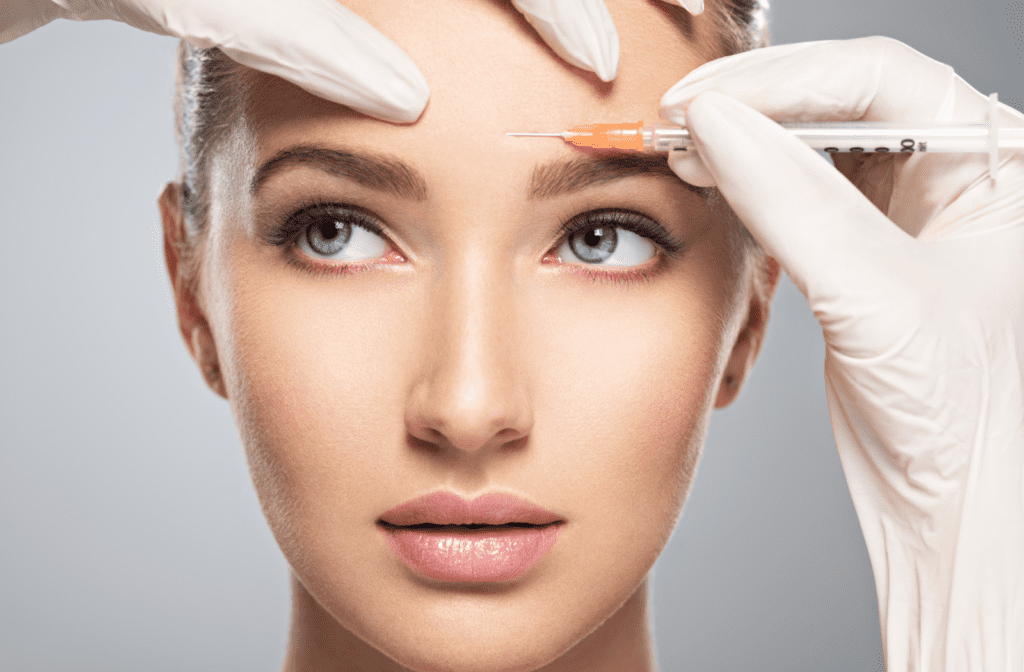On 3 April 2023, the Australian Health Practitioner Regulation Agency (Ahpra) announced updated Guidelines for registered medical practitioners who perform cosmetic surgery and procedures (Cosmetic Surgery and Procedure Guidelines), as well as new Guidelines for registered medical practitioners who advertise cosmetic surgery (Advertising Guidelines), had been issued.
The updated and new guidelines come into effect on 1 July 2023, and have been issued because of various findings in an external review of patient safety issues in the cosmetic surgery industry.
We explore what the updated and new guidelines, as well as the existing laws, mean for influencer marketing campaigns promoting cosmetic surgery and procedures.
Social media influencers and ambassadors
When using influencers or brand ambassadors, it’s important to note that the National Law and existing Guidelines for advertising a regulated health service (which remain unchanged from 2020) prohibit the use of testimonials (being recommendations or positive statements about the clinical aspects of a regulated health service, such as symptoms, diagnosis or treatment, and outcome) to advertise a regulated health service.
Specifically in relation to cosmetic surgery, the Advertising Guidelines state that:
"The use of social media ‘influencers’, ‘ambassadors’ or similar increases the risk that patients are not fully informed and form unrealistic expectations of results. The content published by social media influencers or ambassadors is considered to pose a particular risk to younger people due to the nature of the audience for some social media platforms."
Ahpra & Medical Board - Guidelines for registered medical practitioners who advertise cosmetic surgery - section 5. Tweet
"Medical practitioners or other advertisers who enter into any arrangements with social media ‘influencers’, ‘ambassadors’, content creators or similar individuals are responsible for the advertising content that is delivered by these individuals and must ensure that any advertising produced complies with all guidelines for advertising, including the ban on testimonials in advertising under the National Law."
Ahpra & Medical Board - Guidelines for registered medical practitioners who advertise cosmetic surgery - section 5. Tweet
It’s important to note that testimonials may also be considered as used in advertising where a medical practitioner links to testimonials on third party advertising, re-shares stories or posts containing testimonials from patients, or interacts with reviews, such as by liking a social media post. Accordingly, medical practitioners should ideally minimise their risk by disabling reviews, comments and tagging functions on their social media accounts.
The Advertising Guidelines confirm that the prohibition on using testimonials does not affect the ability of patients sharing information, expressing their views online or posting reviews on review platforms.
If using influencers to advertise cosmetic surgery or procedures (for example, the non-clinical aspects of the regulated health service), you will also need to ensure that you consider obligations under the Therapeutic Goods Advertising Code as applicable.
Offering Influencers free or discounted services for advertising the cosmetic procedures or services
In relation to both cosmetic surgery and non-surgical cosmetic procedures, under the updated Cosmetic Surgery and Procedure Guidelines, medical practitioners must not provide or offer to provide free or discounted procedures to prospective patients, including social media influencers or users, for promotion of cosmetic procedures or services.
This should be considered when negotiating the terms of any influencer agreement or brand ambassador agreement involving cosmetic surgery or procedures.
Other prohibited advertising practices in relation to regulated health services
The National Law prohibits advertising a regulated health service in a way that is false, misleading or deceptive or is likely to be misleading or deceptive, offers a gift, discount or other inducement to attract a person to use the service or the business, unless the advertisement also states the terms and conditions of the offer, creates an unreasonable expectation of beneficial treatment or directly or indirectly encourages the indiscriminate or unnecessary use of regulated health services.
Advertising cosmetic surgery specifically
Medical practitioners who advertise cosmetic surgery are required to comply with a number of codes and guidelines, one of those being the new Advertising Guidelines.
The Advertising Guidelines confirm that responsibility for cosmetic surgery advertising falls to the medical practitioner, and they are required to check content produced by others (such as by influencers) to ensure that it is compliant.
The Advertising Guidelines also set out what the board considers to be good practice cosmetic surgery advertising, and should be reviewed and considered before advertising any cosmetic surgery procedure or practice. Note that the good practice guidelines set out in the Advertising Guidelines are a non-exhaustive list, and it is important to seek advice on a case-by-case basis.
Note also that the Advertising Guidelines specifically provide that:
Cosmetic surgery advertising must not offer incentives, gifts, discounts or inducements that would encourage people to have cosmetic surgery. Examples of inappropriate incentives or inducements include, but are not limited to: a. giving a discount if a patient undergoes cosmetic surgery before a certain date; b. offering benefits such as discounted airfares, accommodation or spa treatments as part of a cosmetic surgery package; c. offering discounted packages or ‘bundling’ of multiple procedures (for example, ‘facelift and fillers’); d. offering a gift or prize for promoting a particular medical practitioner or practice.
Ahpra & Medical Board - Guidelines for registered medical practitioners who advertise cosmetic surgery - section 3. Tweet
Advertising non-surgical cosmetic procedures
The Cosmetic Surgery and Procedure Guidelines require that when advertising non-surgical cosmetic procedures, the advertising should not glamorise cosmetic procedures, minimise the complexity of a procedure, overstate results or imply patients can achieve outcomes that are not realistic.
Whilst the Advertising Guidelines only apply to medical practitioners who advertise cosmetic surgery, and do not specifically state that they apply in relation to non-surgical cosmetic procedures (such as for example, cosmetic injectables, thread lifts, dermabrasion, laser hair removal and chemical peels to name just a few), the Cosmetic Surgery and Procedure Guidelines in relation to non-surgical cosmetic procedures state that the Advertising Guidelines are a useful reference when advertising cosmetic procedures, and should therefore be considered when advertising non-surgical cosmetic procedures.
We anticipate that a subsequent review into non-surgical cosmetic procedures may occur at a later date, and additional limitations may be imposed at that time.
Use of patient image in advertising
The Advertising Guidelines impose some specific obligations on medical practitioners in relation to the use of patient images in advertising, including, but not limited to, an obligation to have fully informed consent from patients (separate from the consent to surgery) to use their image in any advertising, and to provide patients with an opportunity to view their images before consenting to the use of their image in advertising.
Before using any patient images in advertising, medical practitioners should familiarise themselves with the Advertising Guidelines and the specific obligations in relation to the use of patient images.
Age-gating cosmetic surgery advertising content
The Advertising Guidelines require that:
Cosmetic surgery advertising must not be targeted or directed at people under the age of 18 and must limit the exposure of people under the age of 18 by not advertising in publications or other media likely to appeal to, or have a significant audience of, people under the age of 18. Cosmetic surgery advertising in social media must be identified as ‘adult content’ in order to prevent people under the requisite age from accessing cosmetic surgery content on the social media platform.
Ahpra & Medical Board - Guidelines for registered medical practitioners who advertise cosmetic surgery - section 10. Tweet
It would therefore be appropriate for medical practitioners to use age-gating functionality on social media platforms to avoid minors being shown cosmetic surgery advertising.
You should also consider whether there are any branded content policy restrictions in relation to cosmetic surgery adverting on the platforms on which you intend to advertise. For example, on Instagram, cosmetic surgery, cosmetic procedures, weight loss products or weight loss services fall into the category of restricted content, and must be age-gated to 18 years or above.
Advertising offence penalties
Penalties were recently increased in relation to regulated health service advertising offences. The penalties in the case of an individual was increased from $5,000 to $60,000, and in the case of a body corporate, the penalties were increased from $10,000 to $120,000.
The new and updated guidelines also state that failure to meet the guidelines may have consequences for a medical practitioner’s registration.
Nursing and Midwifery Board of Australia Position Statement
The Nursing and Midwifery Board of Australia has released a Position Statement in relation to nurses and cosmetic medical procedures, which was updated in April 2023.
The Position Statement notes that nurses working in the area of cosmetic medical procedures should be aware of the Cosmetic Surgery and Procedure Guidelines and that they serve as an evidence-based framework for nurses, outlining the conduct and practice expectations required of medical practitioners providing cosmetic procedures, and the impact this may have on nurses’ practice.
How we can help
If you are intending to use social media influencers to advertise any regulated health service, specific legal advice should be sought about how to ensure you are able to meet your obligations under the relevant laws, codes, and guidelines. If using influencers to advertise a cosmetic surgery business or a non-surgical cosmetic procedures business, you will have increased compliance issues to consider, and therefore you should ensure that you seek advice ahead of any intended campaign.
We can assist you to understand your obligations when advertising a regulated health service, including the increased obligations under the new and updated cosmetic surgery and procedures guidelines. We can also assist you with advertising clearances, creating informed consent forms, advertising consent forms and influencer or brand ambassador agreements where applicable.
For advice in relation to advertising cosmetic surgery and procedures, contact us.
Information contained within this blog post is intended to be general information only and is not in any way intended to constitute legal advice. You should not act or rely on any information found in this blog post without obtaining prior advice specific to your circumstances.




